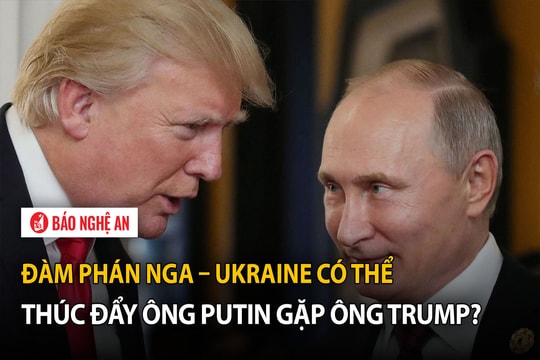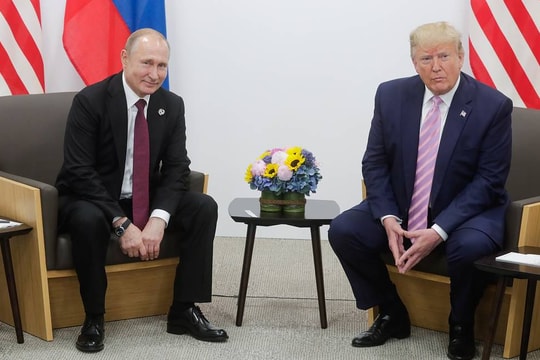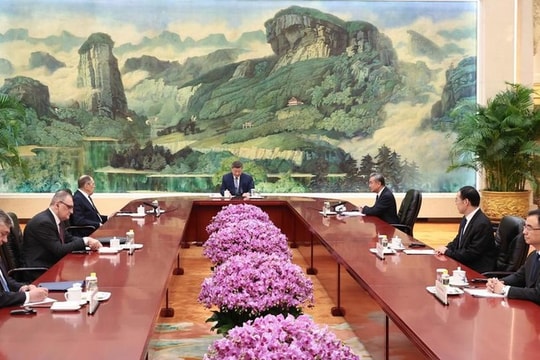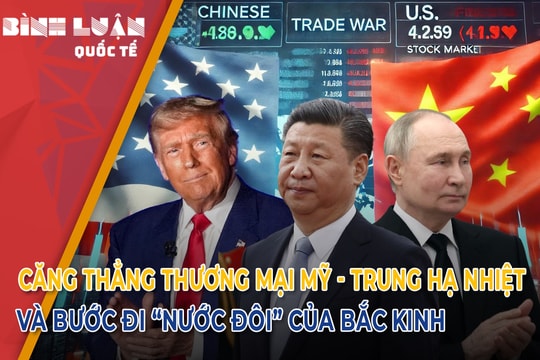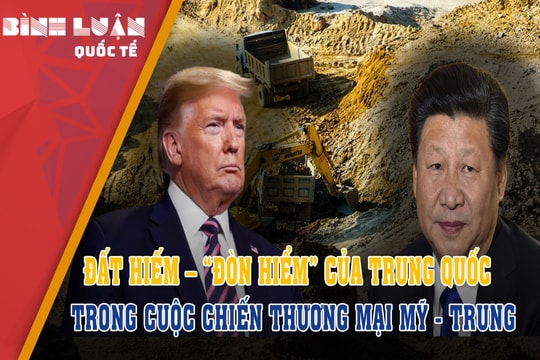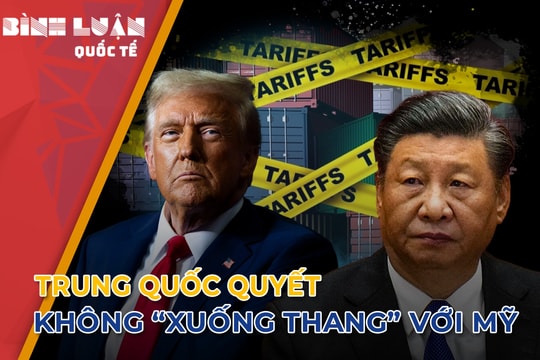China-Japan Relations: Has the Wind Changed Direction?
(Baonghean) - The friendly atmosphere in the Northeast Asia region has received a fresh "breeze" from China and Japan in an effort to improve bilateral relations after a period of "freezing" due to territorial disputes. Has the "wind changed direction" in the China-Japan relationship?
Start-up step
Neighboring relations between China and Japan are showing signs of warming up as Northeast Asia is witnessing positive diplomatic movements. Most notably, the turning point in relations between North Korea and South Korea is being seen, with the focus on the inter-Korean summit scheduled to take place later this month.
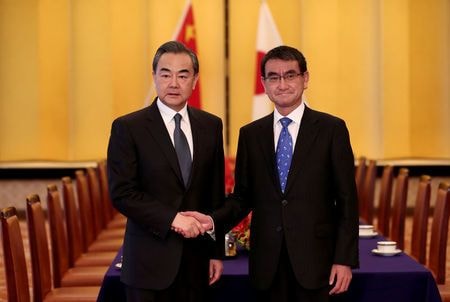 |
| Chinese Foreign Minister Wang Yi (left) meets with Japanese Foreign Minister Taro Kono in Tokyo on April 15, 2018. Photo: Reuters |
Relations between North Korea and regional countries such as China and Japan have also improved. It can be said that this is the first time in many years that Northeast Asia has witnessed such a friendly political atmosphere.
Therefore, the signs of warming in China-Japan relations with the visit of Chinese Foreign Minister Wang Yi in mid-April are receiving special attention.
This is a rare diplomatic move by a senior Chinese official in the past 8 years, since Sino-Japanese relations “fell into bad weather” due to the territorial dispute over the Diaoyu/Senkaku Islands in the East China Sea. The conflict increased after the Japanese government took control of the islands in September 2012.
In terms of the political context of the two countries as well as the region, it can be seen that the visit of the Chinese Foreign Minister to Japan has three purposes.
First, this visit will pave the way for Chinese Premier Li Keqiang’s visit to Japan to attend the Japan-Korea-China trilateral summit scheduled to be held next month. This meeting will likely be followed by a summit between Japanese Prime Minister Shinzo Abe and Chinese President Xi Jinping.
Second, the Chinese Foreign Minister came to Tokyo this time to "press the button" to restart the bilateral economic dialogue that has been stalled for the past 8 years due to tensions over territorial disputes.
Third, the two sides will also exchange views on the situation on the Korean Peninsula in the context that the issue of denuclearization is likely to be mentioned in the upcoming summits between North Korea and the US and South Korea. It is not excluded that the six-party talks on North Korea's nuclear program (with the participation of China and Japan) will be resumed in the near future.
Building a relationship of trust
It is clear that the state of Sino-Japanese relations has undergone a marked change in recent months, from a state of prolonged tension to a warm atmosphere. In early December 2017, the two countries reached a comprehensive agreement on establishing a communication mechanism to prevent accidental collisions at sea or in the air in the disputed area of the East China Sea.
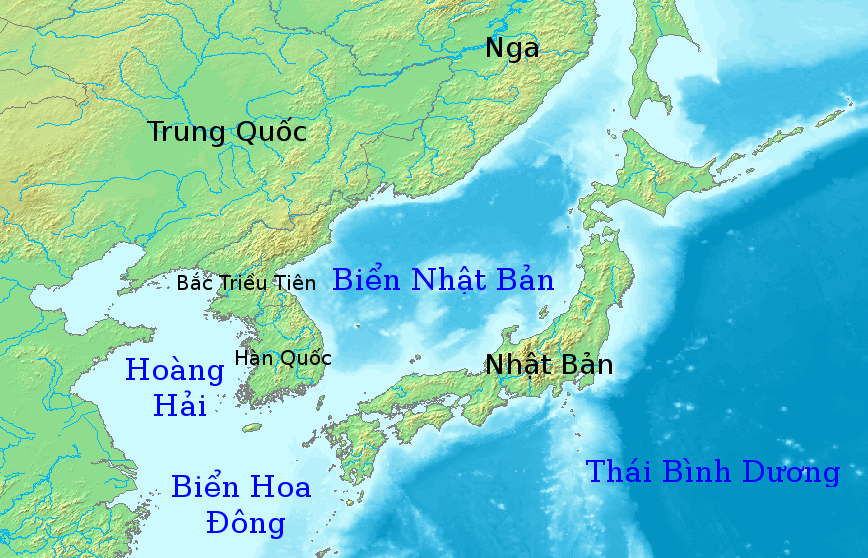 |
| Northeast Asia. Photo: Internet |
Relations between the two countries have also warmed following a meeting in January between Japanese Foreign Minister Taro Kono and his Chinese counterpart Wang Yi in Beijing, during which the two sides agreed to resume visits between their leaders. Both countries hope that 2018 will bring a comprehensive improvement in their relationship. There are many reasons for these changes.
Although Japan is at odds with China over the Senkaku/Diaoyu Islands, it cannot help but cooperate with them on the economic front and on the North Korean issue. These are two major concerns in the domestic and foreign policies of both Beijing and Tokyo.
Economically, China and Japan have both expressed concerns about US President Donald Trump's trade policies. Since his election, Trump has repeatedly criticized China and Japan's trade policies as unfair and harmful to the US.
Recently, he threatened to impose tariffs on Chinese exports and also voiced his dissatisfaction with Japan for “causing trade difficulties for the US over the past many years”. Therefore, although he did not specifically mention President Donald Trump’s protectionist policies, this high-level economic dialogue between China and Japan is seen as an opportunity for both sides to reaffirm the trend of free trade, while strengthening bilateral cooperation, avoiding complete dependence on the US market.
It can be seen that in recent years, China has replaced the US to become the leading trading partner of most countries in Asia, even countries with military alliances with the US, such as South Korea, Japan and Australia. Therefore, it is not difficult to understand why Japan chooses a balanced path in economic relations with the US and China to achieve the greatest benefits from cooperation with Beijing.
The case of China is similar. While the Trump administration has been constantly changing policies, Japan has been relatively stable. Especially when the US-China trade dispute is tense, improving relations with Japan is seen as China's desire to unite major countries to oppose US protectionism. In the long term, Beijing can build economic relations with Japan as a form of "insurance".
Regarding North Korea, although China and Japan have their own calculations and approaches, they have a common concern about Pyongyang's nuclear security. Once a war breaks out involving North Korean nuclear weapons, China and Japan cannot avoid the security and economic consequences. Therefore, recent changes in inter-Korean and US-North Korea relations are closely watched by both Tokyo and Beijing. Observers believe that if Japan wants to maintain an important position in issues such as North Korea, high-level meetings with China will be an opportunity for them to achieve that.
In such a context, it would be positive for China and Japan to build a cooperative relationship, both increasing economic benefits and reducing the variables in each side's foreign policy. Therefore, by activating high-level exchanges, the two countries can build a relationship of mutual trust, opening up a new situation for bilateral relations.


